Deans Past and Present
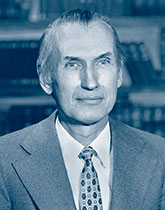
Richardson K. Noback, M.D.
Founding Dean (1969) 1971-1978
Founding Dean Richardson K. Noback, M.D., served as a consultant assisting Kansas City General Hospital and the University of Missouri-Columbia in developing a health sciences center on Hospital Hill in the 1960s. In 1971 – before the school opened – he was selected acting dean and then dean of the new UMKC School of Medicine, a role he served until 1978. Dr. Noback continued working as a senior docent at the school until 1990. He retired from medicine in 1993. Founding Dean Richardson K. Noback, M.D., played a key role in bringing the innovative system of healthcare delivery and medical education to the UMKC School of Medicine, but he came by way of traditional medicine.
He earned his bachelor’s degree at Columbia University and his medical degree at Cornell University Medical College. He did post-graduate training at New York Hospital and Bellevue Hospital, and served on the faculty of State University of New York-Syracuse. In addition, he was tapped to work with the University of Kentucky to develop its health sciences center, where he offered some unconventional concepts for teaching medicine and science.
Although Kentucky did not accept all of Dr. Noback’s revolutionary ideas for its new medical center, his views did align closely with the vision of Grey Dimond, M.D., founder of UMKC’s medical school – an accelerated, dual-degree program encompassing the docent system of learning. In the early 1960s, Dr. Noback served as a consultant assisting Kansas City General Hospital and the University of Missouri-Columbia in developing a health sciences center on Hospital Hill. He was eventually hired as chairman of the project’s executive committee. In 1969 – before the school opened – he was selected acting dean and then dean of the new University of Missouri-Kansas City School of Medicine. After leaving his deanship in 1978, Dr. Noback served as senior docent until 1990. He retired from medicine in 1993.
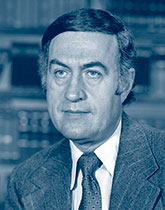
Harry S. Jonas, M.D.
1978-1987
For Harry S. Jonas, M.D., work in academic medicine started as volunteer teaching in the residency program at Kansas City’s General Hospitals 1 and 2. He was recruited to serve as the hospital’s first chairman of the Department of Obstetrics and Gynecology, and later at Truman Medical Center. In 1978, he accepted the role of dean at the UMKC School of Medicine, where he had served as an assistant dean and chairman of the Council on Evaluation. In 1956, Harry S. Jonas, M.D., a successful private-practice physician, found himself being drawn to academia, and eventually the UMKC School of Medicine.
After serving two years in the Navy during World War II, Dr. Jonas earned his undergraduate and medical degrees at Washington University in St. Louis. After completing his residency in St. Louis, he and his wife moved to the Kansas City area, where he joined an independent practice. His work in academic medicine started as volunteer teaching in the residency program at General Hospitals 1 and 2. He was recruited to serve as the hospital’s first chairman of the Department of Obstetrics and Gynecology, and later at Truman Medical Center. Before accepting the role of dean in 1978, he served UMKC School of Medicine as an assistant dean and chairman of the Council on Evaluation. He held the position of dean for nine years.
Dr. Jonas considered himself a dean that was “externally oriented,” and found his greatest reward in his work with students. He found success in helping the medical school overcome challenges with the national accrediting organization, the Liaison Committee on Medical Education (largely due to the school’s unconventional system of teaching medical students). He eventually left the school to become secretary of this organization. He also served as assistant vice president of the American Medical Association.
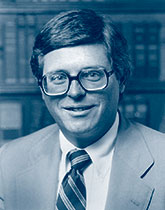
James J. Mongan, M.D.
1987-1996
Dean James J. Mongan, M.D., brought a wealth of medical and health-care policy expertise to the UMKC School of Medicine in 1987. A graduate of Stanford University, Dr. Mongan honed his policy background by serving on staff of the U.S. Senate Finance Committee and in high-level positions in President Jimmy Carter’s administration. While serving as the school’s dean, Dr. Mongan also held the position of executive director at Truman Medical Center, a dual role he served until 1996.
close
James J. Mongan, M.D., brought a wealth of medical and health-care policy expertise to the UMKC School of Medicine during his time as dean. A graduate of Stanford University, where he earned both his bachelor and medical degrees, Dr. Mongan honed his policy background by serving on staff of the U.S. Senate Finance Committee and in top-level positions in President Jimmy Carter’s administration.
While serving as executive director of Truman Medical Center, one of the medical school’s primary teaching hospitals, Dr. Mongan accepted the position of the medical school’s dean, serving in a dual role for 12 years. He was instrumental in making significant changes and improvements in the school’s overall financial status. He also successfully expanded graduate medical education programs with other hospitals, facilitated the teaching affiliation with Saint Luke’s Hospital, and brought focus to strengthening the school’s alumni relations, minority recruitment and humanities departments.
Dr. Mongan left UMKC for the opportunity to serve as president/chief operating officer at the Massachusetts General Hospital in Boston, the oldest and largest teaching affiliate of Harvard Medical School. Throughout his career, he was widely sought after and recognized as a healthcare policy expert, participating on the Pew Health Professionals Commission, the Kaiser Commission of the Future of Medicaid, the Kaiser Family Foundation Board of Trustees, and the Health Advisory Committee of the U.S. General Accounting Office, among other organizations.
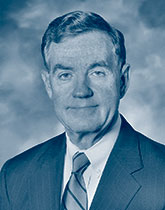
Ratcliffe Anderson, Jr., M.D.
1996-1997
Dean E. Ratcliffe Anderson, Jr., M.D., came to the UMKC School of Medicine with 30 years of distinguished military service. He served the concurrent role of medical school dean and executive director of Truman Medical Center until 1997, when the joint appointment structure changed. At that time, Dr. Anderson left the school to exclusively serve on the hospital’s administrative team.
In 1996, UMKC School of Medicine welcomed its fourth dean, E. Ratcliffe Anderson, Jr., M.D., a leader with 30 years of distinguished military service, culminating as the surgeon general of the U.S. Air Force. In that role, he participated in the process of privatizing the Air Force medical service under a single managed care system. He also launched major military health promotion and disease prevention programs.
Dr. Anderson graduated from the Louisiana State University School of Medicine and completed a dermatology residency in the military at Wilford Hall Medical Center. While dean of the UMKC School of Medicine, he concurrently served as executive director of Truman Medical Center, in addition to participating as vice president of the Aerospace Medical Association and a member of the House of Delegates of the American Medical Association.
In 1997, the joint appointment structure between the school and Truman Medical Center changed, eliminating the combined dean/executive director position. Dr. Anderson’s role was devoted exclusively to administrative leadership at the hospital. He continued to serve as a professor of medicine at the school, as well as a legislative advisor on medical industry issues.
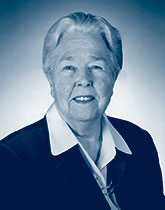
Marjorie S. Sirridge, M.D.
1997-1999
The appointment of Dean Marjorie S. Sirridge, M.D., marked UMKC School of Medicine’s return to a full-time dean exclusively serving an academic leadership role. Dr. Sirridge was an ideal fit to lead this transition, having a long history with the school. She was one of its three founding docents, as well as co-founder and co-director of the Office of Medical Humanities bearing her name. Following her time as dean, Dr. Sirridge remained on faculty as director of the school’s medical humanities program.
close
The UMKC School of Medicine introduced a familiar face as its new dean in 1997: Marjorie S. Sirridge, M.D. She originally committed to serve a one-year appointment, but – much to the benefit the school – she stayed for two.
Dr. Sirridge first came to the school in 1971, where she and her husband, William T. Sirridge, M.D., served as two of the school’s three founding docents. Before accepting the role of dean, she served as the school’s assistant dean for curriculum. In 1992, she and her husband established and co-directed the Sirridge Office of Medical Humanities, a role she continued during and after her time as dean.
Her tenure marked the return to a full-time, academic leadership position of dean at the school; during the nine years prior, the role of dean was combined with the executive director position at Truman Medical Center. Dr. Sirridge was an ideal fit to lead this transition, giving her undivided attention to academic issues essential to educating future physicians.
Dr. Sirridge received her medical degree from the University of Kansas School of Medicine, and went on to specialize in internal medicine and hematology. Her career included private practice and faculty positions at the University of Kansas, until she was recruited by UMKC to help lead the docent system in 1971. Dr. Sirridge spent the remainder of her career serving numerous roles at the School of Medicine, including the appointment as professor emerita in 2005.
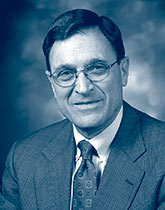
Michael L. Friedland, M.D.
1999-2001
Dean Michael L. Friedland, M.D., joined the UMKC School of Medicine in 1999, bringing his experience as dean of Texas A&M College of Medicine. In his role at UMKC, he identified the school’s top priorities as developing research initiatives, recruiting basic medical science faculty, holding down tuition costs and strengthening the medical program’s reputation – all areas where he made significant strides. In addition, he also introduced new programs to meet the underserved and rural healthcare needs in our community.
With a reputation as a promoter of research and an innovator in medical education and administration, Dean Michael L. Friedland, M.D., joined the UMKC School of Medicine in 1999.
Prior to UMKC, Dr. Friedland served as dean of the College of Medicine at Texas A&M University System Health Science Center. Drawing on previous experiences, he identified key priorities for UMKC’s medical school: developing research initiatives, recruiting basic medical science faculty, holding down tuition costs and strengthening the medical program’s reputation. During his tenure as dean, he led significant strides in these areas, while also creating programs to meet the underserved and rural healthcare needs in our community. Many of these programs continue today.
Dr. Friedland was a board-certified internist and hematologist. He received his medical degree from SUNY (State University of New York) Downstate Medical Center. Throughout his career, he received numerous awards and honors, and published many articles. After leaving UMKC, he continued serving in leadership roles in medical education, culminating as the founding dean of the Schmidt College of Medicine at Florida Atlantic University.
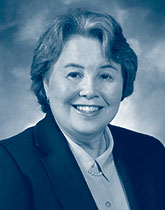
Betty M. Drees, M.D.
(2001) 2003-2014
After serving at the UMKC School of Medicine as associate professor, docent physician, associate dean of academic affairs, executive associate dean and interim dean, Betty M. Drees, M.D., assumed the role of dean in 2003. Her 13-year tenure was marked with accomplishments in fiscal strength, collaboration, student success, new education programs and research. Today, Dr. Drees continues to hold academic appointments in the school’s Department of Internal Medicine and Department of Basic Medical Sciences.
close
The UMKC School of Medicine was a familiar to Betty M. Drees, M.D., long before she accepted the position of dean. She first joined the school in 1998 as associate professor and docent physician. She also served as associate dean of academic affairs, executive associate dean and interim dean before taking the full-time role of dean in 2003.
As dean, Dr. Drees was devoted to providing quality healthcare and research, and was dedicated to academic medicine and training. During her tenure, the school achieved fiscal strength, and made significant advances in collaboration, student success, new education opportunities and research. She led the school in developing professional anesthesiologist assistant and physician assistant programs, as well as graduate and certificate programs in bioinformatics. She also worked to fund seven endowed chairs and professorships, bringing the total to 22 – the most of any academic unit in the University of Missouri System.
Dr. Drees earned her bachelor’s degree from Wichita State University and her medical degree from the University of Kansas, where she also completed an internal medicine residency and an endocrinology fellowship. Prior positions included program director of Specialty Care Services at the Kansas City Veterans Affairs Medical Center and associate professor at the University of Kansas School of Medicine. Today, she continues to hold academic appointments in UMKC’s Department of Internal Medicine and Department of Basic Medical Sciences.
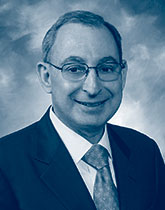
Steven L. Kanter, M.D.
2014-2018
Joining the UMKC School of Medicine in 2014, Steven L. Kanter, M.D., is well-positioned to lead the school into its next half-century. Known for his leadership in medicine, biomedical informatics and medical education, Dr. Kanter also serves as a professor of biomedical and health informatics, a professor of medicine, and the Merle and Muriel Hicklin/Missouri Endowed Chair in Medicine. He earned his bachelor’s degree at Texas A&I University, his medical degree from the University of Texas School of Medicine in San Antonio, and trained in neurological surgery at the University of Florida.
History played a role in attracting Dean Steven L. Kanter, M.D., to the UMKC School of Medicine: specifically, the school’s current place in history. As the school nears its first half-century of providing medical education, it is also preparing for the next 50 years, an opportunity Dr. Kanter embraced as the new dean in 2014.
Another draw? The school is at the forefront of biomedical informatics and a leader in medical education, two areas Dr. Kanter knows well.
In addition to his role as the school’s eighth dean, Dr. Kanter served as professor of biomedical and health informatics, a professor of medicine, and the Merle and Muriel Hicklin/Missouri Endowed Chair in Medicine.
Dr. Kanter earned his bachelor’s degree at Texas A&I University and his medical degree from the University of Texas School of Medicine in San Antonio. He trained in neurological surgery at the University of Florida. His previous positions include neurological surgeon at a large multispecialty clinic and hospital in Temple, Texas, a medical informatics fellow at the University of Pittsburgh, and the founding director of the Office of Medical Education at the University of Pittsburgh School of Medicine.
Before joining the UMKC School of Medicine, Dr. Kanter served as vice dean and a professor of medicine at the University of Pittsburgh School of Medicine. From 2008 to 2012, he served as editor-in-chief of Academic Medicine, the peer-reviewed journal of the Association of American Medical Colleges.
Dr. Kanter’s work has been recognized through many awards and honors, including the Merrell Flair Award, the highest honor awarded by the Association of American Medical Colleges’ Group on Educational Affairs. His contributions reflect a leadership, knowledge and experience with medical school, teaching hospital and university issues.
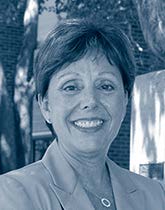
Mary Anne Jackson, M.D.
2018-2024
Mary Anne Jackson, M.D., is a 1978 graduate of the UMKC School of Medicine. She is a professor of pediatrics with a specialization in infectious diseases at Children’s Mercy Hospital, one of the school’s partner teaching hospital and a member of the UMKC Health Sciences District. Dr. Jackson began her tenure as interim dean on July 1, 2018 – April 30, 2020. Her appointment as dean began May 1, 2020.
Dr. Jackson is internationally respected for her impressive record of scholarly achievement. She serves on the American Academy of Pediatrics’ Red Book Committee on Infectious Diseases, a publication that provides guidance on the diagnosis, treatment, manifestations and epidemiology of more than 200 childhood conditions. She is a journal reviewer for American Journal of Infection Control, Journal of Pediatrics, Pediatrics, Pediatric Infectious Disease Journal and JAMA Pediatrics, among many other research publications.
Dr. Jackson has won numerous awards for her mentorship including the Children’s Mercy Department of Pediatrics Excellence in Mentoring award in 2015, and Golden Apple Mentoring Awards in 2012 for mentoring fellows and 2013 for residents. In 2012, she received a Take Wing Award, presented annually at the School of Medicine to one who has demonstrated excellence in his or her chosen field and exceeded the expectations of peers in the practice of medicine, academic medicine or research.
In 2017, Dr. Jackson was selected to the National Vaccine Advisory Committee. She also serves on the American Heart Association’s Committee on Cardiovascular Disease in the Young as well as numerous additional national, regional and local committees.
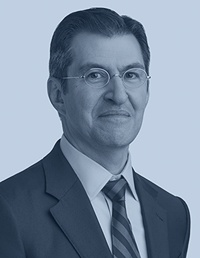
Alexander Norbash, M.D., M.S., FACR
2024-Present